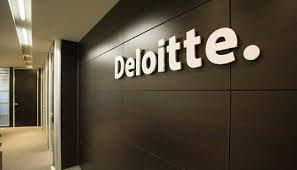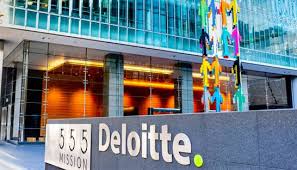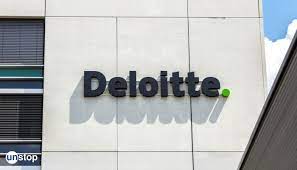Interview Preparation
Visit this page for Deloitte Interview Preparation

Visit Deloitte Interview Preparation Dashboard
After the Student Clears the First Round of the exam, they qualify to give the second round which is the Versant Test. Post Versant Exam there are 2 Rounds of Interview held by Deloitte Officials.
- Technical Interview Round
- Covering Core and Computer Programming(IT) Topics
- Final Year Projects
- Puzzles
- Hr Interview Round
- Covering Vocabulary Skills
- English Speaking Skills
- Culture and Corporate Fit (Personality Test)
Technical interview
Most of the questions are asked from a technical core subject like Data Structure.
Hr Interview
The HR interview process is the last hiring process before placed. Here HR checks the students speaking ability power.
Call To Action
Deloitte is committed to the advancement of small, disadvantaged, and diverse businesses as a vital contributor to the success of the organisation, clients, and the communities we operate in. Diversity of experience, skills, expertise, opinions, and talent is a key factor in adding richness and strengths to the business solutions we provide..
Deloitte Written Test Overview
Very Important: Deloitte has kept its syllabus and pattern the same for many years. The basic selection procedure consists of basically three rounds. These three rounds are:-
Written Test,Deloitte SVAR is also known as Versant Test,Face to face Interview
To get selected, you first have to clear its written test which sections are described below in the table. After clearing the basic written test, you have to go through the Versant Test which will be an automated call, and this test will be checking you up on your Speaking and Listening Skills. And in the end, you will have to go through the Face to Face Interview for the Final Selection.
Deloitte Paper Pattern
| Section | NO. OF QUESTIONS IN TEST | Sectional Timing | Cut Off |
|---|---|---|---|
| Quants and Logical | 20 Ques | 25 mins | 11 Questions |
| English | 10 Ques | 10 mins | 7 Questions |
| Computer Fundamentals | 20 Ques | 25 mins | 11 Questions |
| Coding | 2 Ques | 30 mins | 1 Question |
| Total | 52 Questions | 90 mins | 30 Questions (Approx.) |

LCM & HCF
0/100%
Completed

Divisibility
0/100%
Completed

Number, Decimal fraction & Power
0/100%
Completed

Time & Work
0/100%
Completed

Pipes & Cisterns
0/100%
Completed

Averages
0/100%
Completed

Profit & Loss
0/100%
Completed

Simple & Compound Interest
0/100%
Completed

Algebra
0/100%
Completed

Surds & Indices
0/100%
Completed

Allegation and Mixtures
0/100%
Completed
WORKING ON
Artificial Intelligence
Artificial intelligence is the simulation of human intelligence processes by machines, especially computer systems. Specific applications of AI include expert systems, natural language processing, speech recognition and machine vision.
Business Services
Business services is a general term that describes work that supports a business but does not produce a tangible commodity. Information technology (IT) is an important business service that supports many other business services such as procurement, shipping and finance.
Cloud Services
Cloud services facilitate the flow of user data from front-end clients (e.g., users' servers, tablets, desktops, laptops—anything on the users' ends), through the internet, to the provider's systems, and back. Cloud services promote the building of cloud-native applications and the flexibility of working in the cloud
CyberSecurity Services
Cyber Security Services provides cybersecurity solutions and risk assessment services to prevent cyber attacks and meet compliance objectives.
Digital Services
Digital Services is a term that refers to the electronic transfer of information including data and content across numerous platforms and devices like web or mobile.
Intelligent Industry
Defining Intelligent Industry. At its simplest Intelligent Industry means harnessing the power of data to foster innovation, make new and differentiated 'smart' products, improve supply chains, create new customer experiences and deliver new sources of value.
Technology Solutions
Types of technology include mechanical technology, medical technology, communications technology, electronic technology, and industrial and manufacturing technologies.



